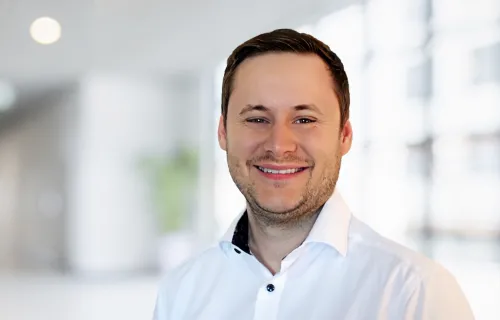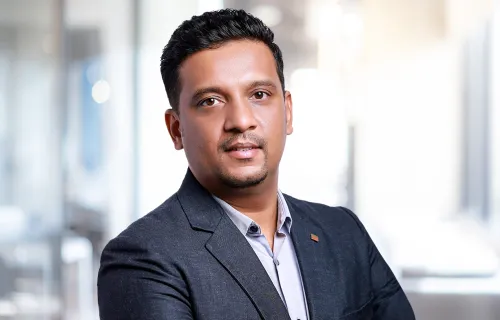Learn about what it’s like to be a data engineer through the eyes of Aditya Jagdale, a CGI Partner based in the United States.
Aditya, tell us what first drew you to data engineering?
I’ve always found raw data fascinating. On the surface, it might just look like data and records—but underneath, there’s so much insight waiting to be uncovered. Sometimes, those insights can be powerful enough to shift the direction of a business—or even a life.
What I really enjoy is the process of refining that data—cleaning it up, structuring it, and turning it into something useful. It’s kind of like cutting a rough diamond; you start with something unpolished, but with the right tools and care, it becomes valuable. And for me, that value lies in helping our clients make more informed and impactful decisions that enable them to succeed.
Can you explain how your work as a data engineer helps clients?
Most of what I do revolves around building automated systems that make sense of complex data. In doing so, clients can access accurate and timely insights that support decision-making and help inform business plans.
For example, I work on automated end-to-end data synchronization projects using Python coding—things that used to take hours manually can now be done in seconds. This kind of automation helps my client, a government organization, focus their time and energy where it really matters¬—on analysis and strategy, not data wrangling. It improves accuracy, saves time, and ultimately supports better outcomes.
What skills are most important in your role, and how do you keep learning?
This is a very hands-on and technical role, so a solid foundation in programming languages, coding, data manipulation and analysis is important. For instance, I rely on my knowledge of SQL and Python as well as platforms like Snowflake, Matillion and Salesforce. But it’s not just about technical know-how—you also need to be collaborative and understand business context to translate real-world needs into automated solutions.
I use a mix of resources to stay updated on the latest developments: industry news, community forums and online courses. Most software programs offer robust learning courses; those are very helpful.
I also learn a lot on the job—both from my teammates as well as from the projects I work on. My manager gives me opportunities to tackle complex challenges, and I am fortunate to have a mentor who shares practical advice that has really helped me grow.
Another great resource is our internal learning platform, CGI Academia. I have access to on-demand courses, from technical skills to soft skills like fostering positivity in remote teams—something I may not have explored otherwise.
How do you organize your day to use your time most efficiently?
I’m usually at the office by 8 a.m. I begin by reviewing my priorities and creating a plan for my day. Our team typically has a daily stand-up meeting to check in on project goals and review client requirements. Then, I dive into the project work for my client, which usually involves development, QA testing support, documentation and charting next steps on the projects.
The work is pretty intense, so by lunchtime, I’m ready to disconnect for a bit and meet up with colleagues to have lunch. It’s a good way to recharge, socialize and share ideas.
At the end of the day, I spend about 15-20 minutes wrapping up: reviewing what got done, confirming plans, noting follow-ups, and reflecting on key wins. It helps me stay focused and organized.
Evenings are my time to decompress at home. I usually go for a walk. It’s a simple but effective way to clear my mind and boost my mood. Exercise is a great way to improve stress resilience!
It’s been great to hear your story, Aditya. On a final note, what advice would you give your younger self?
I’d tell my younger self to be patient. Learning takes time, and that’s OK. Like they say, “Rome wasn’t built in a day.”
Don’t be afraid to ask questions or dig deeper until things make sense. Don’t second-guess your abilities—stay curious and trust your ability to figure things out, and you’ll go further than you think.





